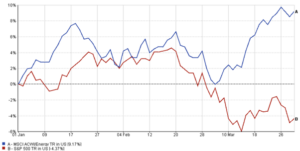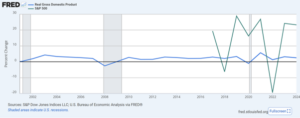European leaders have offered congratulations to Donald Trump on his election victory, though they are also aware that this may bring new economic challenges. Unlike in 2016, European diplomats were not entirely surprised by Trump’s win, even though some were reluctant to accept the results. Over the past year, many European countries have prepared for the possibility of his return, focusing on policies to protect their economies from potential trade conflicts.
Mixed Reactions Across Europe
Some European officials reacted to Trump’s victory with disbelief. “I am seeing it, and not wanting to believe it, but I am not as shocked as last time,” said an EU official. Many European leaders have been uneasy about Trump’s confrontational style, which led to strained relationships during his first term. Despite their concerns, French President Emmanuel Macron, Spanish Prime Minister Pedro Sanchez, and other leaders quickly extended their congratulations.
However, not all European countries view Trump’s victory negatively. For example, Hungarian Prime Minister Viktor Orban has previously expressed admiration for Trump and even mentioned celebrating his win. EU leaders are set to meet on Thursday and Friday in Budapest, where they will discuss future strategies for managing transatlantic relations.
Concerns Over Trade War Resurfacing
During his campaign, Trump had threatened to impose a 10% tariff on European nations, claiming that the EU had not purchased enough American goods. Trade with the U.S. is critical for European economies, and the EU holds the world’s largest bilateral trade and investment relationship with the U.S., reaching a record high of 1.2 trillion euros (around $1.29 trillion) in 2021. Any new tariffs could put additional strain on the EU’s already fragile economic growth.
An EU diplomat suggested that the upcoming meeting in Budapest will be the first opportunity for European leaders to discuss the potential impact of Trump’s return. A primary concern is maintaining European unity in response to possible shifts in U.S. policies. Additionally, the future of Trump’s policy on Ukraine will be closely watched, as it directly affects European security and stability.
Economic “Nightmare” for Europe
In a recent research note, ING analysts warned that Trump’s election could spell Europe’s “worst economic nightmare.” The team stated that a renewed trade war could push the Eurozone economy from stagnation into full-blown recession, with Germany’s trade-dependent economy likely to be hit hardest, especially in the automotive sector.
While European leaders claim to be prepared for a second Trump term, it remains uncertain whether the EU can achieve deeper integration amid domestic challenges in many European governments. Europe may also need to wait and see what specific policies Trump enacts before responding decisively.
Germany’s finance minister, Christian Lindner, voiced his concerns during the recent IMF annual meetings in Washington, D.C., warning that Europe may consider retaliatory measures if the U.S. initiates a trade conflict with the EU. “Diplomatic efforts are needed to convince the new U.S. administration that a trade conflict with the EU is not in its best interest,” Lindner stated, adding that Europe might have to consider a response.
Summary and Outlook
Trump’s return to the White House has sparked mixed reactions among European leaders. While some nations expressed congratulations, there is a widespread concern over potential economic conflicts and trade disputes. Given the close trade ties between the EU and the U.S., any new tariffs could severely impact European economies. European leaders are already discussing how to respond to these challenges, with an emphasis on unity.
For forex investors, Trump’s victory may initially boost the U.S. dollar, potentially putting pressure on the euro and other European currencies. The EU’s approach to Trump’s policies will be a critical factor to watch in the coming months, as it may shape future market trends and trading opportunities.





